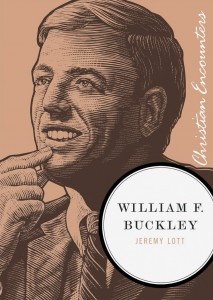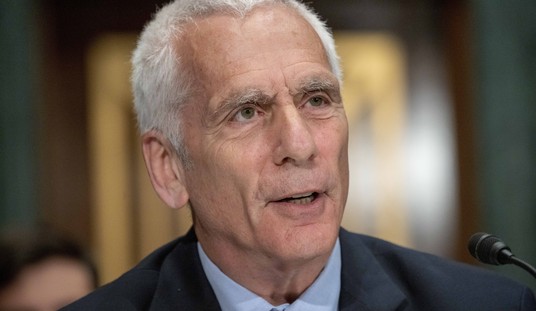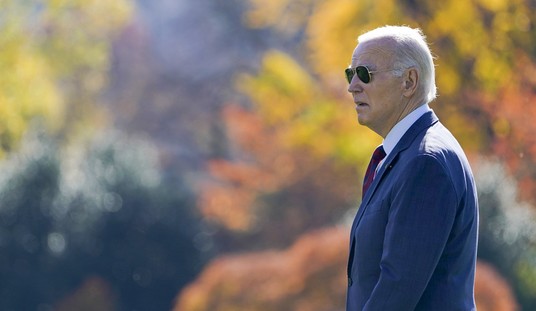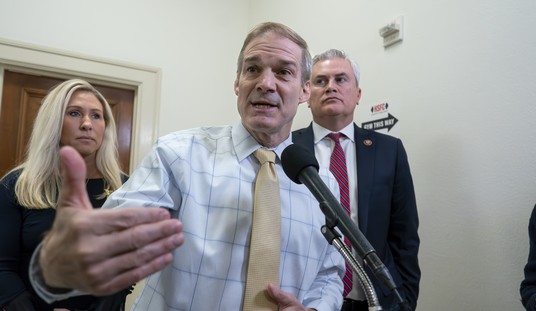I am an admitted bibliophile and thought it might be interesting and useful to post some thoughts on books/authors every Friday. So here is the first post. Let me know if you think this is something worth continuing.
William F. Buckley (Christian Encounters Series) by Jeremy Lott is an excellent introduction to one of the central figures of the post-war conservative movement. But it is important to keep in mind that it is just that: an introduction.
You can’t do justice to a man like Buckley in less than 150 pages. But this book does what this type of book should do: give an interesting overview of the life and times of the subject and prompt the reader to seek out more.
Given my interest in the subject, and the relevance of the topic, I thought it would be good to do a Q&A with the author. Jeremy graciously agreed to answer a few questions via email. His answers, and a little bit more about the book are below.
Thomas Nelson’s Christian Encounters, of which this book is a part, gives the book some of its flavor. Here is a brief description of the series:
Christian Encounters, a series of biographies from Thomas Nelson Publishers, highlights important lives from all ages and areas of the Church. Some are familiar faces. Others are unexpected guests. But all, through their relationships, struggles, prayers, and desires, uniquely illuminate our shared experience.
Lott highlights how Buckley’s faith informed/influenced and in many ways inspired his politics.
And the hook Lott uses to introduce WFB is one of a “prophet.” He saw America headed in the wrong direction and committed himself to calling the country he loved back to the straight and narrow path.
This makes for an interesting story arc particularly when conservatism seems ascendant and Buckley is less the prophet and more the man trying to herd the cats of the various factions. Lott doesn’t have the space for the details of Buckley and conservatism post-Reagan but it is an interesting aspect of the Buckley as prophet perspective.
In short: Lott’s short bio doesn’t break any new ground – we are all still waiting for a more definitive biography – but it is a quick and well done introduction to this larger that life figure in American politics.
Students or those looking for a brief introduction would do well to read this and then use the further reading recommendations to dig deeper.
Ten Questions with Jeremy Lott
1. How does viewing WFB through the lens of “prophet” help us understand him better?
It helps us to see how he saw himself, at least in part. I quote from a letter that William F. Buckley wrote to Ronald Reagan recounting Buckley’s appearance on the Tonight Show. WFB told Johnny Carson “that vaticide was the act of killing a prophet, and that if he wanted to go down as guilty of that crime, all he had to do was kill me.”
Now, this was a witticism, so we shouldn’t place too much weight on it, but neither should we ignore it. I argue that it was along the lines of what Ben Stiller’s villain White Goodman said several times in the movie Dodgeball. You remember? “I’m kidding, but not really.”
2. This is a Christian Encounters series, how did WFB’s faith impact and inspire his politics?
His politics grew out of his faith and his upbringing, though the faith sometimes had to serve as a check on the upbringing. It moved him on segregation, anti-Semitism, and mutually assured destruction (the last very late in life), for instance.
3. Did Buckley’s anti-communism during the Cold War hide, to a degree, his more libertarian side?
To a degree, it did. When you are concentrating on using one national security apparatus to grind down another, more threatening one, you are going to appear less libertarian.
But there’s also the fact that his libertarian side emerged from a political theory, dubbed “fusionism,” that was really developed in the 1960s. Fusionism said virtue that is coerced is not virtue, and so government should get out of the virtue-promotion business. This eventually inspired to his call to end the war on drugs, but it took awhile.
4. How is the National Review of today different from the magazine WFB created and ran for so many years?
It’s more reliably Republican. In 1956 and 1960, NR declined to endorse the GOP nominee, and Buckley regularly criticized Eisenhower and Nixon. That started changing in 1968 when the magazine threw its weight behind the Nixon-Agnew ticket. In 2008, it endorsed Mitt Romney in the primaries and John McCain in the general.
5. How important was Firing Line to making WFB a household name? How do you think the show impacted both conservatives in the media and political media in general?
It put him in people’s living rooms once a week and allowed him to mix it up with most of the great politicians and cultural figures of the time. Many conservatives, including current NR editor Rich Lowry, were inspired by this. It also proved that a regular forum for ideas on television could find a dedicated audience.
6. How significant (both short and long term) was the damage from the ill fated NR Civil Rights editorial? The almost immediate reversal seems to be forgotten.
I was shocked to learn that National Review’s stance in favor of barring blacks from the ballot lasted for only one issue. In the very next issue, NR reversed itself. And yet this is often cited as some long-standing policy of the magazine. Very odd.
It did a lot of damage, obviously. It helped defenders of the Civil Rights Act to brand all of its critics as racists. The professional anti-racists really haven’t changed their script since.
7. What was the most surprising thing you came across or learned researching this book? Was there anything that struck you as new and/or under-reported?
How about the fact that Buckley didn’t really want to found National Review? He tried to take over The Freeman, Human Events, and even the liberal Catholic magazine Commonweal before he finally threw in the towel and founded NR.
8. What do you see as WFB’s legacy in terms of the conservative movement?
The fact that there is a conservative movement.
9. Is “fusionism” still possible?
I think its central insight is still valid, though it only goes so far. It doesn’t help us settle some contentious issues like abortion. Practically, it will always be applicable because any conservative coalition in this country is going to be a mix of conservatives and libertarians. They’ll have to find some way to get along.
10. Ayn Rand, and her books, have made something of a comeback. WFB tried to write Objectivism out of the conservative movement. Did he succeed?
We should distinguish between Rand-as-entertainment and Objectivism. She wanted people to swallow the philosophy and the novels as a single shot but that’s not how it usually works, in my experience. Modern Rand fans prefer cocktails. One of her biggest boosters, Glenn Beck, mixes his Atlas Shruggery with Mormonism. That should have Rand turning over in her atheist grave.















Join the conversation as a VIP Member